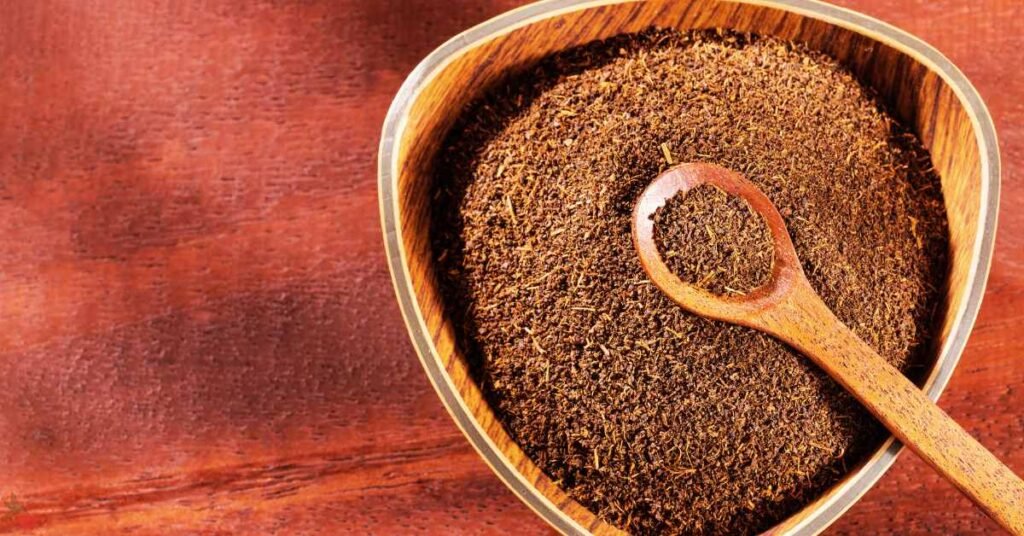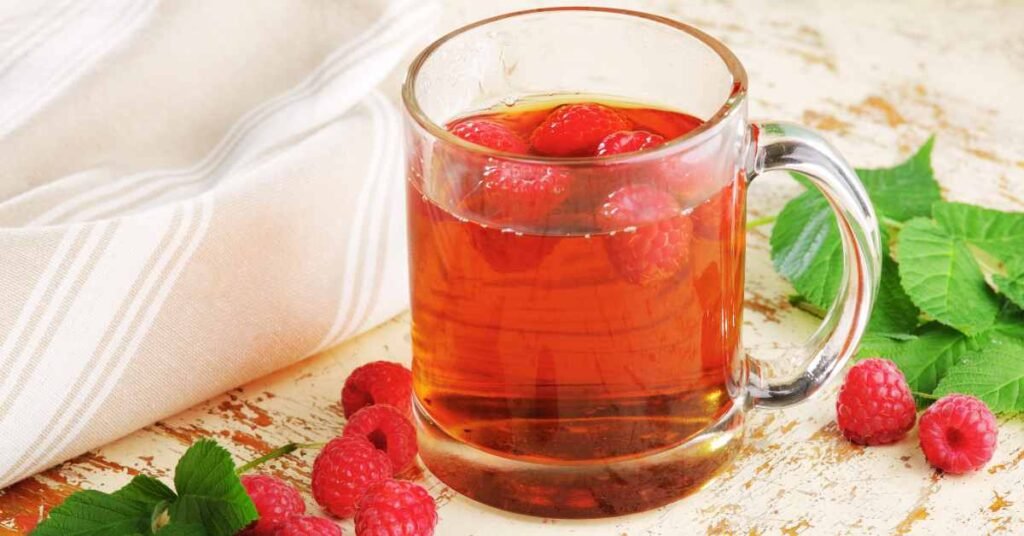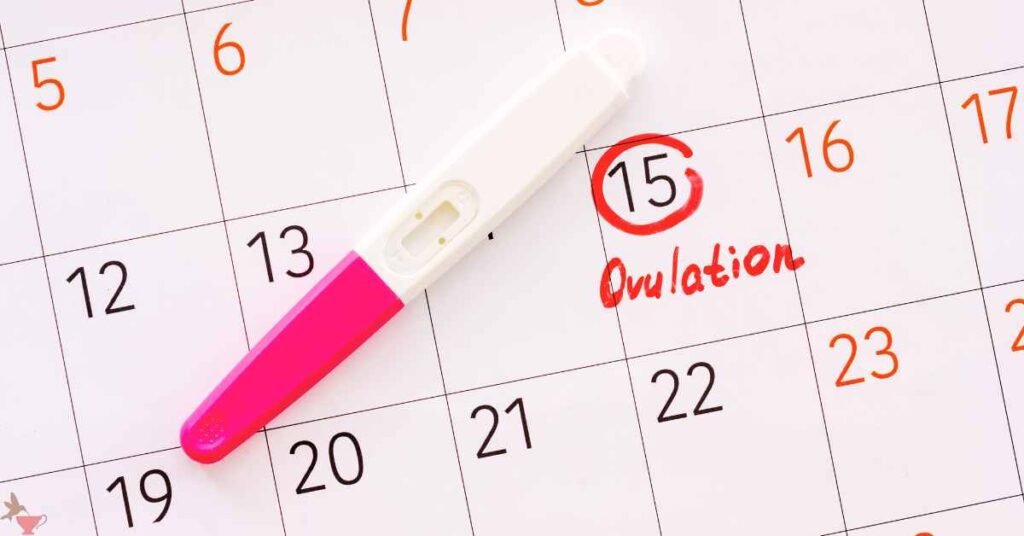In the bustling world of wellness, where ancient traditions meet modern science, one quiet yet powerful elixir has been gaining attention for its potential impact on women’s reproductive health – tea.
Beyond its soothing warmth and diverse flavors, tea has been hailed as a gentle ally in the intricate dance of hormones that govern a woman’s menstrual cycle, particularly during the crucial phase of ovulation.
Let’s embark on a journey through the fragrant gardens of tea and explore how this age-old beverage may hold the key to enhancing fertility.
The Ritual of Tea

In cultures worldwide, tea has been revered not only for its taste but for the ritual that surrounds it.
A moment of tranquility amid the chaos of daily life, a sip of tea can transport us to a realm of calm and introspection.
As we delve into the realm of fertility, incorporating tea into our daily routines takes on new significance, fostering a connection between mind and body.
Green Tea and the Power of Antioxidants
Among the various teas adorning the shelves, green tea stands out as a fertility-friendly option.
Packed with antioxidants, particularly catechins, green tea has been linked to improved reproductive health in women.
These antioxidants help neutralize free radicals in the body, reducing oxidative stress and potentially supporting the delicate balance of hormones involved in the ovulatory process.
Researchers have explored the potential of green tea in enhancing fertility by studying its impact on menstrual cycle regularity.
A harmonious menstrual cycle is often indicative of a well-functioning reproductive system, and green tea’s antioxidants may contribute to this equilibrium.
Black Tea: A Bold Brew for Hormonal Harmony

For those who prefer a bolder cup, black tea emerges as a compelling contender in the quest for optimal ovulation.
Rich in theaflavins and thearubigins, black tea brings forth a unique profile of antioxidants that may positively influence hormone regulation.
Studies have suggested that theaflavins, found abundantly in black tea, could play a role in modulating estrogen levels.
Estrogen, a key hormone in the female reproductive system, orchestrates the menstrual cycle, with optimal levels essential for a healthy ovulation process.
By gently influencing estrogen, black tea may contribute to hormonal harmony, potentially enhancing fertility.
Chamomile: Serenity in a Cup
In the bustling world of fertility, stress can often cast a shadow over the delicate dance of hormones.
Enter chamomile, a gentle herbal tea celebrated for its calming properties.
While not a traditional tea derived from the Camellia sinensis plant, chamomile deserves a place in our fertility-focused exploration.
Chamomile’s ability to reduce stress and promote relaxation may indirectly support optimal ovulation.
Stress, both physical and emotional, can disrupt the delicate hormonal balance necessary for regular menstrual cycles.
By incorporating chamomile into your daily routine, you not only indulge in a comforting cup but also provide your body with a moment of reprieve from the demands of daily life, potentially supporting a healthier reproductive system.
Raspberry Leaf Tea: Nourishing the Womb

For centuries, women have turned to raspberry leaf tea for its purported benefits on the female reproductive system.
While not a direct stimulant of ovulation, raspberry leaf tea is celebrated for its uterine-toning properties.
As a nutrient-rich infusion, it contains vitamins and minerals, including calcium, iron, and magnesium, which are crucial for overall reproductive health.
The potential benefits of raspberry leaf tea extend beyond the menstrual cycle, aiming to create an environment conducive to conception.
By nourishing the uterus and promoting uterine tone, this tea may provide a supportive foundation for a fertilized egg to implant and thrive.
Herbal Blends: Crafting Fertility Elixirs
The world of herbal teas offers a vast canvas for crafting fertility-focused blends.
From red clover and nettle to Vitex agnus-castus (chaste tree), herbal concoctions abound with potential benefits for women seeking to optimize their reproductive health.
Red clover, for example, is renowned for its phytoestrogen content, which may offer gentle support to estrogen balance.
Nettle, on the other hand, is a nutritional powerhouse, providing essential nutrients like iron and calcium that are crucial for reproductive well-being.
Chaste tree, often used in traditional herbal medicine, has gained attention for its potential impact on hormone regulation.
While its effects on fertility require further research, some women incorporate chaste tree tea into their routines in the hope of promoting hormonal balance.
The Art of Timing: Incorporating Tea into Your Cycle
As we navigate the realm of tea for ovulation, timing becomes a crucial aspect of the ritual.
The menstrual cycle is a finely tuned symphony of hormones, and aligning tea consumption with specific phases can be a thoughtful approach.

In the follicular phase, which begins with menstruation and concludes with ovulation, green tea may take center stage.
The antioxidant properties of green tea may contribute to a smoother transition through this phase, supporting a healthy start to the menstrual cycle.
As ovulation approaches, consider incorporating black tea into your routine.
The theaflavins in black tea could gently influence estrogen levels, providing a potential boost to the intricate dance of hormones leading up to ovulation.
During the luteal phase, which follows ovulation and precedes menstruation, chamomile may step in as the calming companion.
As the body prepares for a potential pregnancy, the soothing properties of chamomile may offer a tranquil interlude, promoting relaxation during this critical stage of the menstrual cycle.
A Personal Journey: Listening to Your Body
While the potential benefits of tea for ovulation are intriguing, it’s essential to approach this journey with an understanding of your body’s unique needs.
Every woman’s body is a symphony of individual rhythms, and what works for one may not necessarily work for another.
Listening to your body is a key aspect of the fertility journey. Pay attention to how different teas make you feel, both physically and emotionally.
Keep a journal to track changes in your menstrual cycle, energy levels, and overall well-being as you incorporate tea into your routine.
This personalized approach allows you to tailor your tea ritual to suit your body’s unique needs, creating a harmonious synergy between tradition and modern science.
Final Word

In the quest for optimal ovulation and enhanced fertility, the world of tea beckons with its aromatic allure and potential benefits.
From the antioxidant-rich green tea to the hormonally harmonious black tea, and the calming chamomile to the nourishing raspberry leaf, tea presents a diverse palette for crafting a fertility-focused ritual.
As you embark on this journey, let the steam rising from your teacup carry with it the centuries of tradition, wisdom, and the potential for gentle support on your path to conception.
With each sip, you are not just indulging in a comforting beverage; you are participating in a ritual that connects you to the age-old dance of hormones, the rhythmic pulse of your menstrual cycle, and the hope that within this delicate balance, the magic of fertility may unfold.
MEDICAL DISCLAIMER
Itsnevernotteatime.com cannot and does not contain medical/health advice. The medical/health information is provided for general and educational purposes only and is not a substitute for professional advice.




